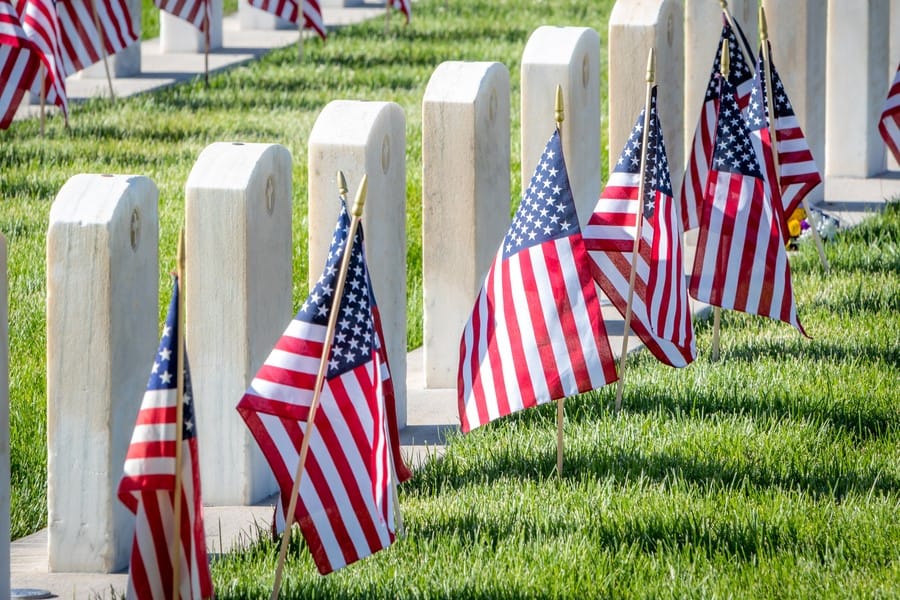A Guide to Memorial Day: Honoring Those Who Have Fallen
Remembering those brave men and women who have made the ultimate sacrifice for our country and freedom.

Memorial Day is a time-honored tradition in the United States, a day when we pause to remember and honor the brave men and women who have made the ultimate sacrifice while serving our country. As we gather with friends and family to enjoy picnics, parades, and other festivities, it's essential to understand the history and significance of this important day.
The History of Memorial Day
The roots of Memorial Day can be found in the aftermath of the Civil War, a conflict that resulted in more casualties than any other in American history. Originally called Decoration Day, it was a time when individuals would adorn the graves of Union and Confederate soldiers with flowers and flags.
A nationwide day of remembrance occurred in May of 1868 in Arlington National Cemetary, a cemetery where soldiers from both the Confederacy and the Union are buried. This event had been proclaimed by General John Logan and was the first occurrence of the annual event.
As time passed, the holiday expanded to pay tribute to those who had fallen in all American wars, not solely the Civil War. In 1968, Congress enacted the Uniform Monday Holiday Act, which shifted Memorial Day from its customary date of May 30 to the final Monday in May, establishing a long weekend for Americans. This modification was implemented in 1971, and Memorial Day was designated as an official federal holiday.
Memorial, Veterans, and Independence Days
While Memorial Day, Veterans Day, and Independence Day are all patriotic holidays, each has its unique focus. Memorial Day is a day to remember and honor those who have died while serving in the U.S. military, whereas Veterans Day, celebrated on November 11, honors all those who have served, both living and deceased. Independence Day, on the other hand, commemorates the adoption of the Declaration of Independence on July 4, 1776, and celebrates America's freedom from British rule.
Memorial Day Traditions and Celebrations
Memorial Day is marked by various events and traditions across the United States. Here are some common ways communities and individuals celebrate the day:
Parades
Many towns and cities host Memorial Day parades featuring marching bands, floats, and veterans' organizations. These parades serve as a public display of gratitude and respect for the fallen and often include speeches by local politicians and military leaders.
Ceremonies and Performances
Cemeteries, memorial parks, and other public spaces often hold ceremonies to honor the fallen, featuring speeches, military salutes, and the playing of taps. In addition, patriotic music performances are common at these events, with songs like "The Star-Spangled Banner," "America the Beautiful," and "God Bless America" serving as powerful reminders of the sacrifices made for our country.
Gravesite Decorations
One of the most enduring Memorial Day traditions is the decoration of gravesites with flags and flowers. Many people visit the resting places of loved ones who served in the military, while others participate in organized efforts to adorn the graves of veterans in national cemeteries.
Participation by Organizations
Various organizations take part in Memorial Day celebrations, including veterans' groups such as the American Legion and Veterans of Foreign Wars, civic organizations like Rotary Clubs and Lions Clubs, and local businesses that sponsor events or offer discounts to veterans. These groups play a crucial role in organizing and supporting Memorial Day observances.
Honoring the Fallen: Personal and Community Involvement
As we enjoy the long weekend and enjoy the unofficial start to summer, let's all remember the true meaning of Memorial Day and find ways to honor those who have fallen. Here are some suggestions for personal and community involvement:
- Visit a veterans' cemetery or memorial park and place flowers or flags on the graves of fallen service members.
- Attend local Memorial Day events like parades and ceremonies, and encourage friends and family to join you.
- Share stories of loved ones who have served, or research your family's military history to better understand the sacrifices made by previous generations.
- Volunteer with veterans' organizations, such as helping with events or providing support to local veterans in need.
- Teach children about the importance of Memorial Day by discussing its history and significance, and encouraging them to participate in age-appropriate activities that honor our fallen heroes.
We Are Blessed
We invite you to enjoy Memorial Day as a time for reflection, gratitude, and remembrance. As we gather with friends and family, let us not forget the brave men and women who have given their lives in service to our country.
By understanding the history of Memorial Day, participating in traditional celebrations, and finding personal ways to honor the fallen, we can ensure that their sacrifices are never forgotten.
Peter Piper's Picks participates in Amazon Associates and other affiliate programs. We may earn commissions from purchases made by following links from our website. There is never any additional cost to you.
